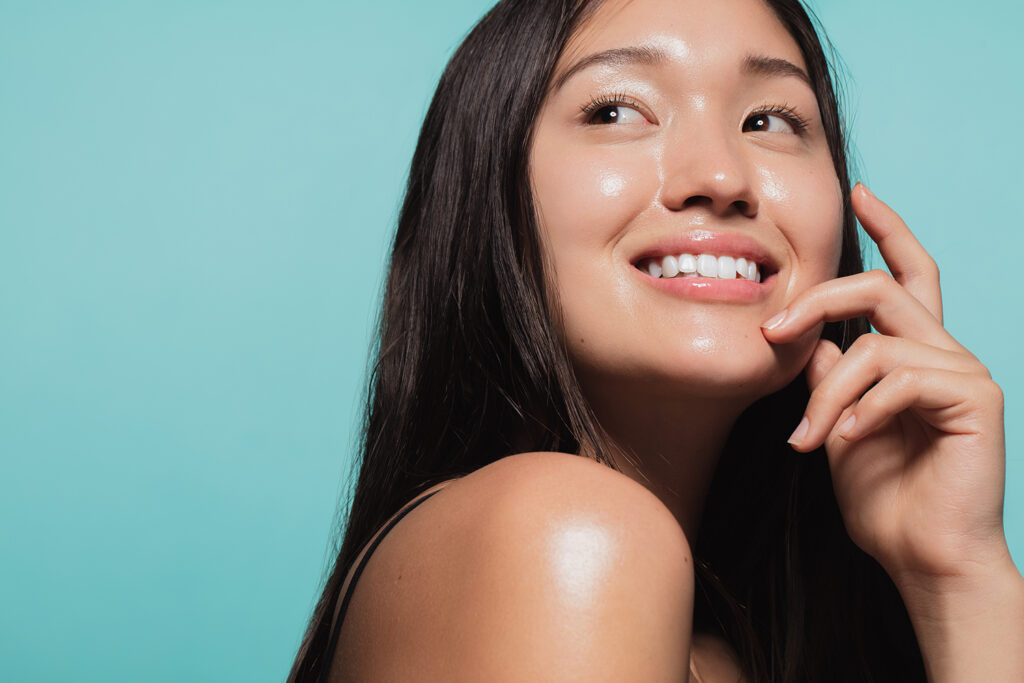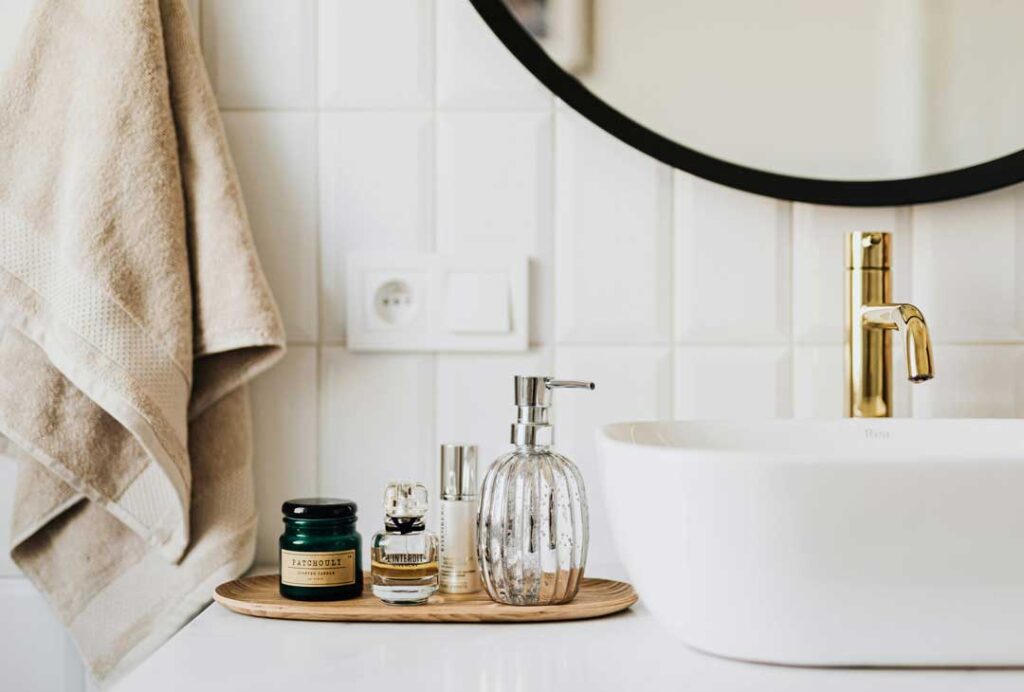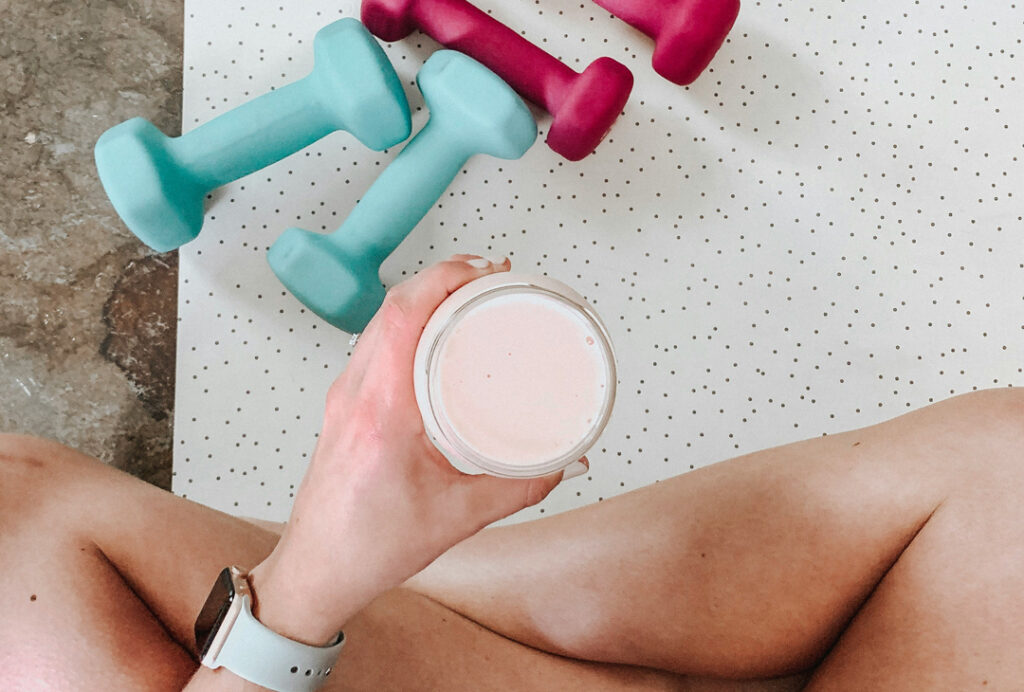Just like my dermatologist won’t stop talking about SPF (yes I know I still need to wear it in winter, Susan!), she also doesn’t stop talking about retinol. An ingredient that can be found in skincare and in your dermo’s arsenal, the multitasker has been proven to help with skin concerns ranging from acne, to wrinkles, to pigmentation.
However like all good things there’s a catch – in some cases, retinol can also be an irritant and increase our sensitivity to the sun, so before introducing it in to your routine, it’s important to understand whether it’s right for you.
“Retinol can address probably the biggest spectrum of concerns out of all skincare ingredients, which is why it’s hailed as the gold standard in the skincare world,” explains Joanna Fleming, Beauty Editor at Adore Beauty. “It can improve the appearance of fine lines, pigmentation, enlarged pores, textural irregularities, dullness and congestion, so it really is an all-rounder for general rejuvenation of skin appearance.”
Here, 10 to try – for every skin type.
Best retinol serum for beginners:
Medik8 Crystal Retinal
Looking to begin using retinol, but not sure where’s a safe place to start? Medik8 have formulated an entry level retinal serum, or for those with sensitive skin. Even with a milder formulation, it still fights signs of ageing and can help your skin texture.
Most affordable retinol:
Q+A Retinol 0.2% Serum
As you may have figured, retinol isn’t the cheapest skincare to shop – mostly because it’s an expensive ingredient to stabilise. However, Q&A’s delicate retinol serum is not only kind to your skin, but to your bank balance too. It’s formulated with a lower dose of retinol, meaning it will help to improve texture and clarity without causing upset to the skin barrier.
Best retinol serum for hydration:
The Ordinary Granactive Retinoid
Great for newbies, this super-affordable option means you can dip your toe (or preferably, your face) into retinols without breaking the bank. It harnesses 5% granactive retinoid which is proven to reverse signs of ageing with zero-to-little irritation – and thanks to added squalene, the high-performing formula keeps your skin hydrated, too.
Best night serum:
BOOST LAB Retinol
Regular ol’ beauty sleep not cutting the mustard of late? An overnight renewal serum that smooths away fine lines, evens the look of skin and nourishes as it goes might do you some good. BOOST LAB’s Retinol Night Renewal Serum will work on your skin tone and texture, while hydrating and nourishing – all while you sleep.
Best for acne-prone skin:
La Roche-Posay Effaclar Adapalene Gel 0.1% Acne Treatment
Adapalene is a retinoid that is available in two concentrations: 0.1 and 0.3 percent, so catering to different needs. While marketed as an acne treatment, it can also be used to clear and prevent blackheads, whiteheads, and clogged pores.
Best retinol for fading unwanted pigmentation:
Skinstitut Retinol
Skinstitut Retinol contains 0.25% retinol, making it a low-medium strength option that is suitable product for most skin types. It aims to repair and strengthen, stimulating collagen and elastin production for plumper skin, fading unwanted pigmentation, decreasing acne lesions, and aiding in correcting premature ageing.
Most hydrating retinol:
Olay Regenerist RETINOL24
Olay’s day and night versions are super creamy and hydrating without leaving any greasy residue on the skin. Olay also offer a Serum that combines a retinoid complex with niacinamide for visibly smoother and brighter skin in the long run.
Best retinol for sensitive skin:
RoC Retinol Correxion Night Serum Capsules
This serum is hydrating and is formulated with ceramides which are great for skin barrier health. It’s also in single-dose capsules, so you know you’re getting the right dose every single time.
Best for minimising pores:
CeraVe Resurfacing Retinol Serum
Developed with dermatologists, CeraVe’s Resurfacing Retinol Serum is perfect for post-blemish dark spots and pores. It has three essential ceramides, soothing niacinamide, encapsulated retinol[A1], and liquorice root extract that help with uneven skin tone and texture by reducing the appearance of post-blemish marks, and improving overall radiance for a healthy-looking complexion.
Best lightweight retinol:
Paula’s Choice 1% Retinol Booster
This booster can easily be added to and mixed with any of your other serums.It’s a lightweight, concentrated booster with 1% encapsulated retinol, helping to even skin tone, brighten, improve the appearance of wrinkles and create a smooth complexion.
What is retinol?
Though often used as a catch-all term, retinol comes in different forms, and each has a different name – but all of them are derivatives of vitamin A. The strongest forms are only available by prescription, though there are also tons of options available over-the-counter as well.
The benefits
Retinol helps firm skin by triggering collagen and elastin production and by speeding up cell turnover, working like a messenger to hurry up the process. It can also improve pigmentation, texture, acne, acne scarring, and clogged pores.
“I’ve used retinol for many years, and partially attribute some of my skin’s radiance and “bounce” to having retinol-based products in my routine (along with a number of other cosmeceutical ingredients),” explains Fleming, Beauty Editor at Adore Beauty. “Retinol is one of those products, if you choose the right one, that can be completely transformative – there aren’t many ingredients out there that can have that same impact on so many different skin concerns.”
How do we use it?
The key with retinol is to start slow. For newbies, the adjustment period may involve mild flaking, dry patches, redness, and in some cases, purging (i.e. your skin will look way worse before it becomes glowy and clear—mmm, lovely).
“Retinoids have a reputation for irritation, especially when used in concentrated forms, too regularly, and too liberally. It’s important to start off using a low percentage a couple of nights a week to build up your skin’s tolerance, before increasing usage and/or upping retinol strengths,” adds Fleming.
Start using a retinol one to three times a week before increasing to daily or every other day.
When do we use it?
While it’s often thought of as a “nighttime” product, it can safely be used during the day too. If you’re applying a serum with retinol, make sure to follow it with a moisturiser, which can help combat side effects. (And SPF! Always SPF!) No matter your skin goal or the time you apply, you’ll want to put on a thin layer of retinol over your whole face rather than spot treating.
How long does it take to see results?
Depends on the product. “With a prescription, changes are apparent in four to six weeks, while OTC retinol may take more like 12 weeks,” says dermatologist Corey L. Hartman, MD. How quickly it all goes down depends on both the severity of the skin concerns you’re looking to address and the potency of what you’re using. FYI: A higher strength does not translate to a better product. How your skin tolerates retinol needs to be taken into account. “If you’ve found a suitable strength that delivers results without irritation, stay there,” Dr. Hartman says. Too much redness? Ease up. On the flip side, still breaking out or wrinkles not improving? Bump it up.
What’s the alternative?
Probably the most popular would be bakuchiol. Bakuchiol is an extract derived from the babchi plant, which has a long history in Ayurvedic tradition. “Bakuchiol is the only botanical option that’s been shown to be effective,” Paul Jarrod Frank, MD, a celebrity cosmetic dermatologist in New York City tells Women’s Health. “It’s great for those who can’t tolerate retinoids, retinols, and their many versions.” That’s why derms will recommend it to patients who are pregnant or have extremely sensitive skin. Interested? Try Biossance Squalane + Phyto-Retinol Serum, Swisse Bio-retinol renewing night cream or Andalou Naturals Rejuvenating Serum
Skin dictionary
Retinol
The most common form of vitamin A used in over-the-counter products, it’s also the strongest form you can get without a prescription.
Retinoid
The umbrella term for all vitamin A derivatives, including retinol, retinaldehyde, and retinoic acid—although it’s most commonly used to refer to prescription forms of the ingredient.
Retinisation
The process in which the skin adjusts to using vitamin A treatments, and the quick cell turnover it brings on. This period is when you tend to experience side effects like flaking and dryness.
Tretinoin
A prescription topical retinoid looked to for treating acne and, in milder forms, for its anti-aging properties.
Adapalene
A retinoid that was previously available only by prescription, it is now also accessible OTC. It’s commonly used to treat acne (see: Differin) and can be less irritating than other forms.
Womenshealth.com.au provides reviews and recommendations to help you find the right product. Products you purchase through links on this page may earn us a small commission.



















